Auctions
A Schiele Goes AWOL, But Sotheby’s Still Lands a $173 Million Impressionist and Modern Sale
The top lot for the evening was a Kazimir Malevich Suprematist painting.
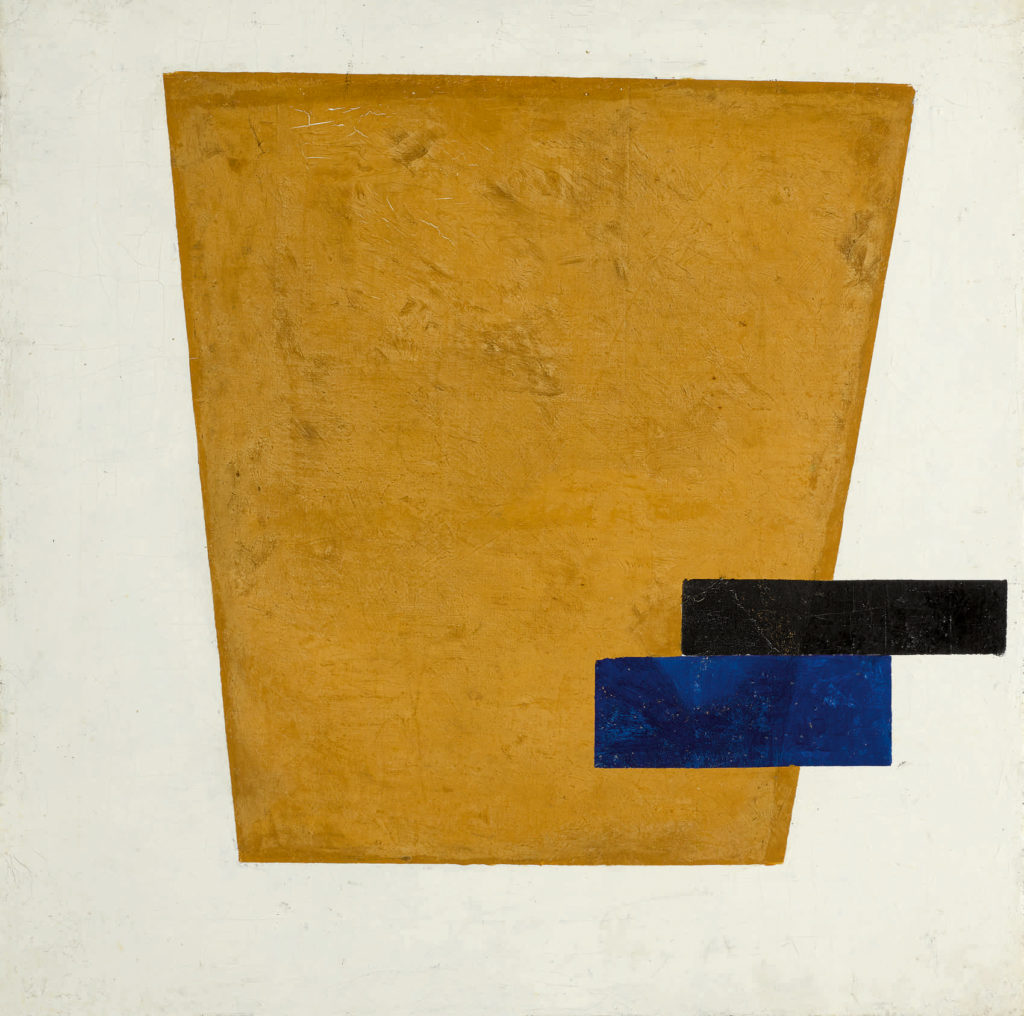
The top lot for the evening was a Kazimir Malevich Suprematist painting.

Brian Boucher

Despite the last-minute withdrawal of an early Egon Schiele nude, Sotheby’s New York tallied $173.8 million on Tuesday evening at its auction of Impressionist and Modern art. Including 50 lots, the sale was estimated (minus the withdrawn lots) to come in between $147 million and $210.4 million without premium. The hammer total for Tuesday’s auction just edged past the low estimate to score $149.2 million, marginally beating the underwhelming $144 million total from the spring 2016 sale.
Dealers agreed that the withdrawn Schiele painting, created when the artist was just 19 and showing the mythical figure Danaë, didn’t sufficiently exemplify the Austrian artist’s style.
“It’s a very good painting for a Klimt, but it’s not good for a Schiele,” said Paris dealer Christian Ogier on his way out of the saleroom.
But if the house failed to drum up interest in the Schiele, the rest of the night had a few bright spots. Taking the lead was a Kazimir Malevich painting, Suprematist Composition With Plane In Projection (1915), that gave rise to a five-minute contest, finally hammering at $18.6 million to Grégoire Billault, head of contemporary art in New York, beating out chairman Lisa Dennison and Alina Davey of the private client group. Including premium, the painting sold for $21.1 million.
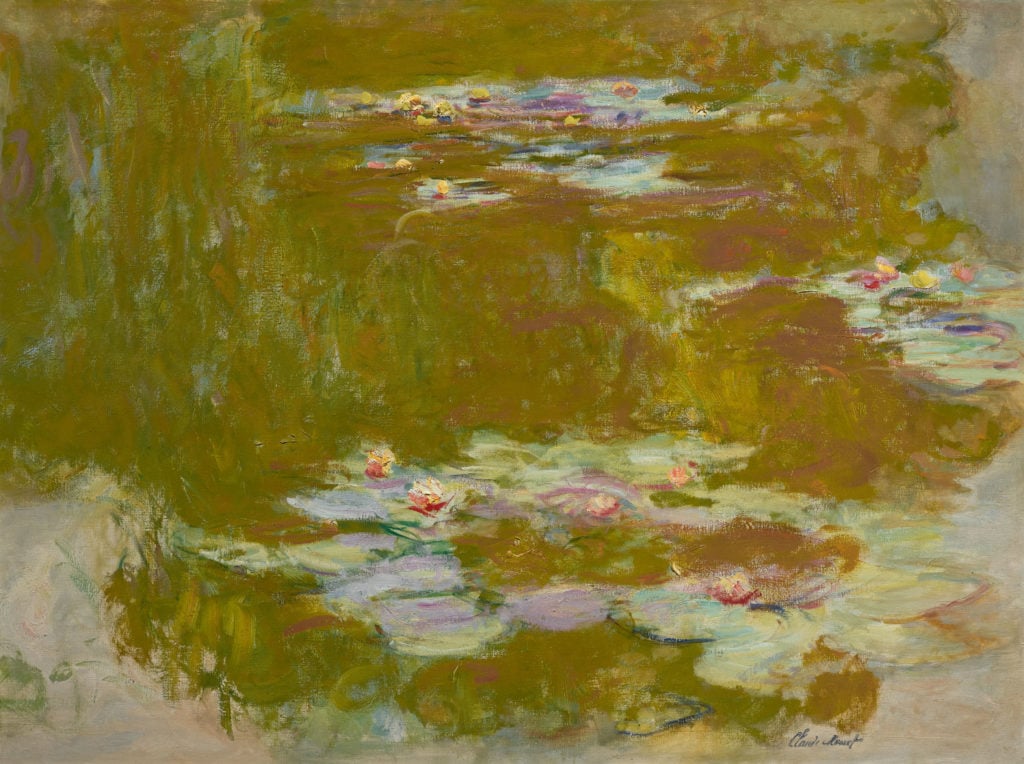
Claude Monet, Le Bassin Aux Nympheas (c. 1917–1920). Image courtesy of Sotheby’s.
In total, 37 of the 50 lots on offer (or 74 percent) found buyers. Eleven of the offered works, a full 20 percent, were guaranteed to sell; the house owned one canvas. (Final sales prices reported by the auction house include the house’s premium; presale estimates do not.)
Still, describing the sale as a flat-out success would appear to be a stretch. If one looks at the hammer total that the sale realized—$149 million—as compared to the revised (lower) presale estimate of $147 million and $210.4 million, it barely squeaked by the low estimate. Given that a few days earlier the house had expectations of pulling in $178 million to $251 million, Sotheby’s is far short of where it had originally hoped to land.
The five-night gigaweek of New York art auctions kicked off Monday night at Christie’s by a $289.2 million sale, led by a Constantin Brancusi sculpture.
On Tuesday evening, the number-two lot was Monet’s Le Bassin Aux Nymphea, a painting of the lily pond at his Giverny estate, which hammered for $16 million after just a minute of bidding. Dating circa 1917–1920, the canvas last came up for auction in November 1989, when it hammered for $3.9 million, according to the artnet Price Database. It was guaranteed to sell on Tuesday by an irrevocable bid with a third party, which allowed the buyer to offer the canvas with confidence.
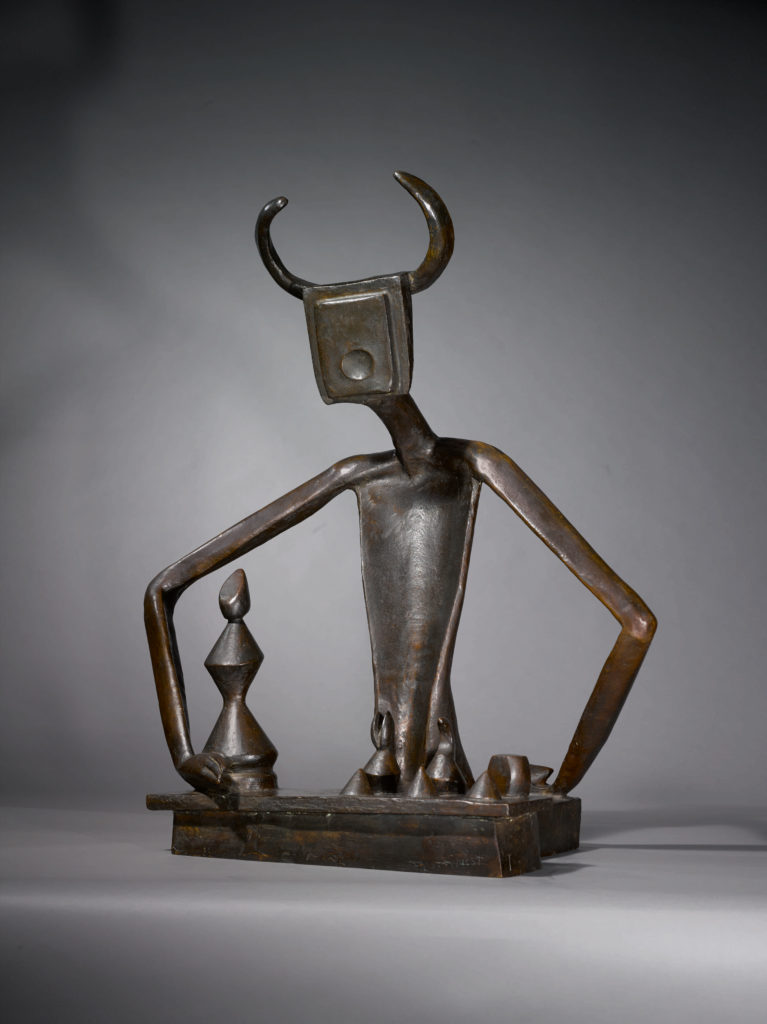
Max Ernst, Le roi jouant avec la reine (conceived in 1944 and cast in the 1950s by the Modern Art Foundry). Courtesy Sotheby’s.
Though the top two lots were paintings, many of the hardest-fought lots were sculptures: The night included 11 works of sculpture, 10 of which sold.
The number-three lot for the night was Max Ernst’s Surrealist bronze Le roi jouant avec la reine (1944), for which some 10 bidders raised their paddles. It sold for $16 million, setting a record for a sculpture by the artist. The work came from the collection of artist Robert Motherwell and his wife, Renate Ponsold Motherwell, and it set the tone for the 90-minute sale’s strong bidding. Simon Shaw, co-head of Impressionist and Modern art worldwide, pointed out after the sale that there was an average of four bidders for each work on offer.
“It absolutely flew!” dealer Frances Beatty Adler said of the Ernst after the sale. “There’s a resurgence of interest in Surrealism, and people see its influence on Pop art, Ruscha, Gober—we don’t even have to mention the return of ‘Twin Peaks!’”
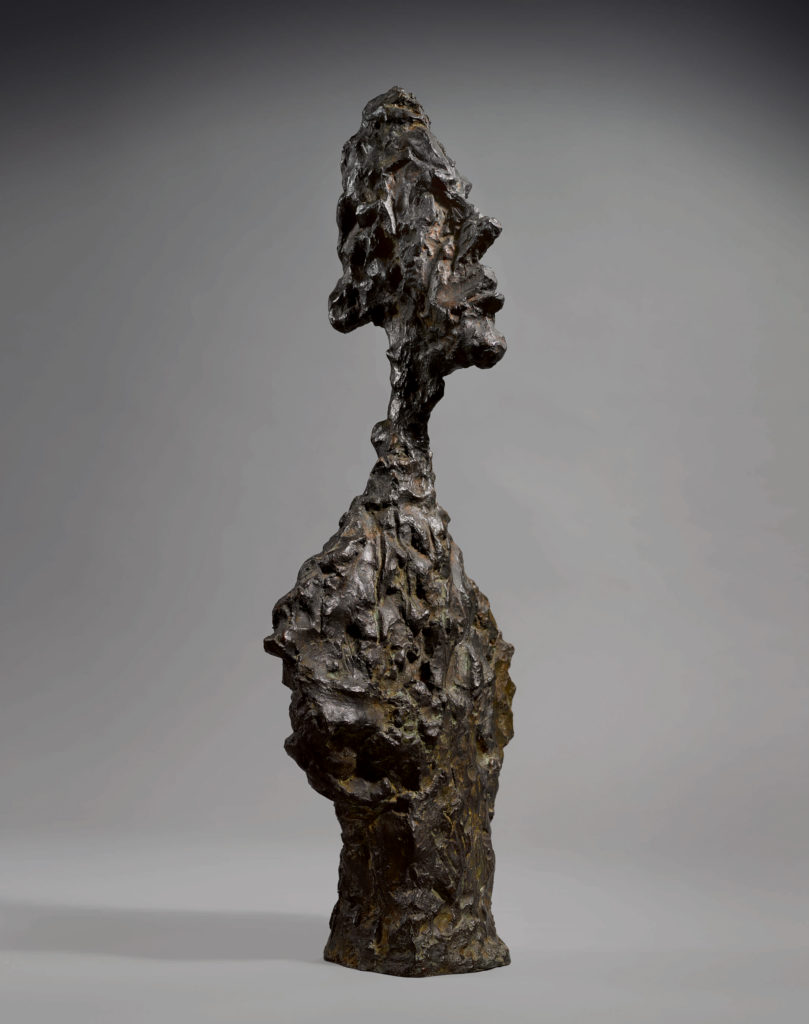
Alberto Giacometti, Buste de Diego (c. 1957). Image courtesy of Sotheby’s.
Off the market since 1964 when the sellers David and Laura Finn picked it up, Alberto Giacometti’s Buste de Diego (1957) was guaranteed to sell for at least $10 million. Perhaps buoyed by the current exhibition of the artist at London’s Tate, it edged past estimate to sell for $10.9 million. David Finn co-founded the PR firm Ruder Finn in 1948; he and Laura Finn donated a Henry Moore sculpture to New York’s Columbia University, which was met with some protests from students who found it ugly.
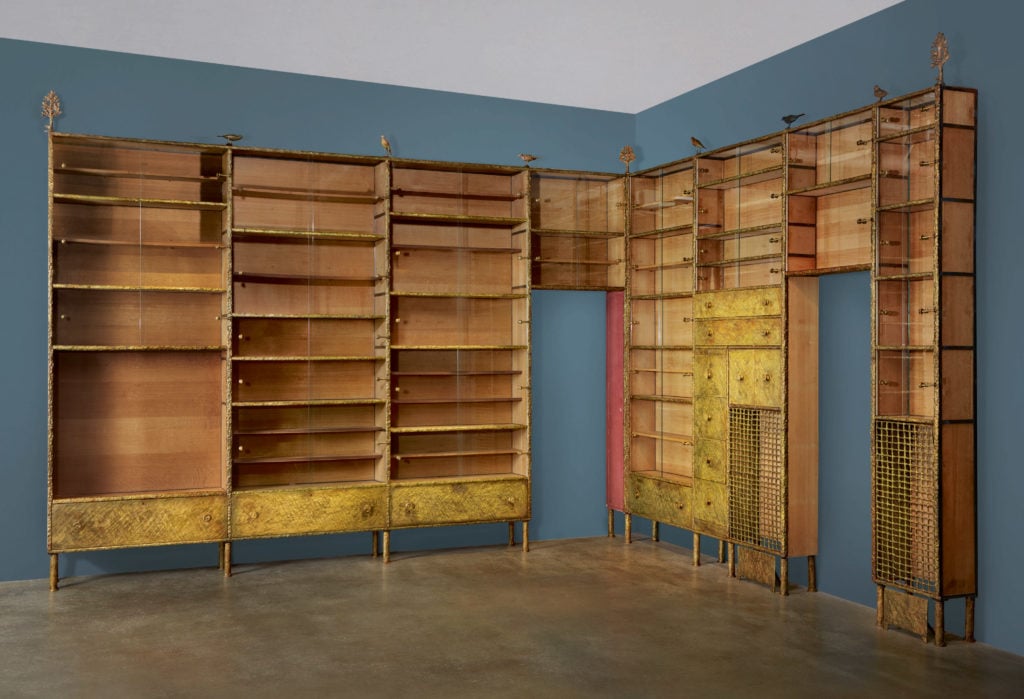
Diego Giacometti, Bibliothèque De L’île Saint-Louis (1966–69). Courtesy Sotheby’s.
While such sales typically consist solely of paintings and a handful of sculptures, Tuesday’s auction featured a large work of decorative art: Bibliothèque De L’île Saint-Louis (1966–69), a 14-foot-wide set of bookshelves designed by Diego Giacometti, the frequent model of his more famous brother, Alberto. After Alberto died, Diego largely devoted himself to decorative arts, according to the exhibition catalogue. Estimated to bring more than $2 million, the piece was commissioned by publisher-collector Marc Barbezat. After a five-minute back-and-forth, the work went to Amy Cappellazzo, chairman and executive vice president of the contemporary art department, for $6.3 million, setting a record for the artist.